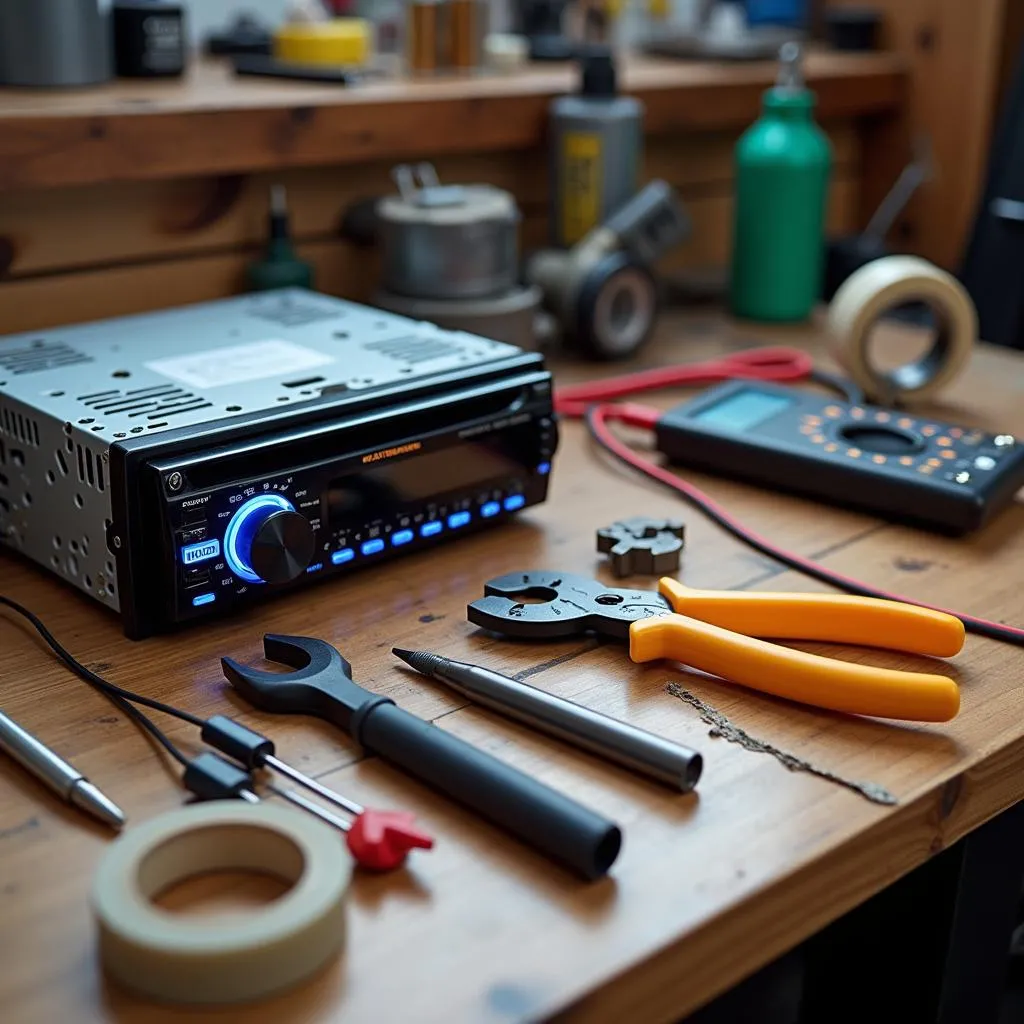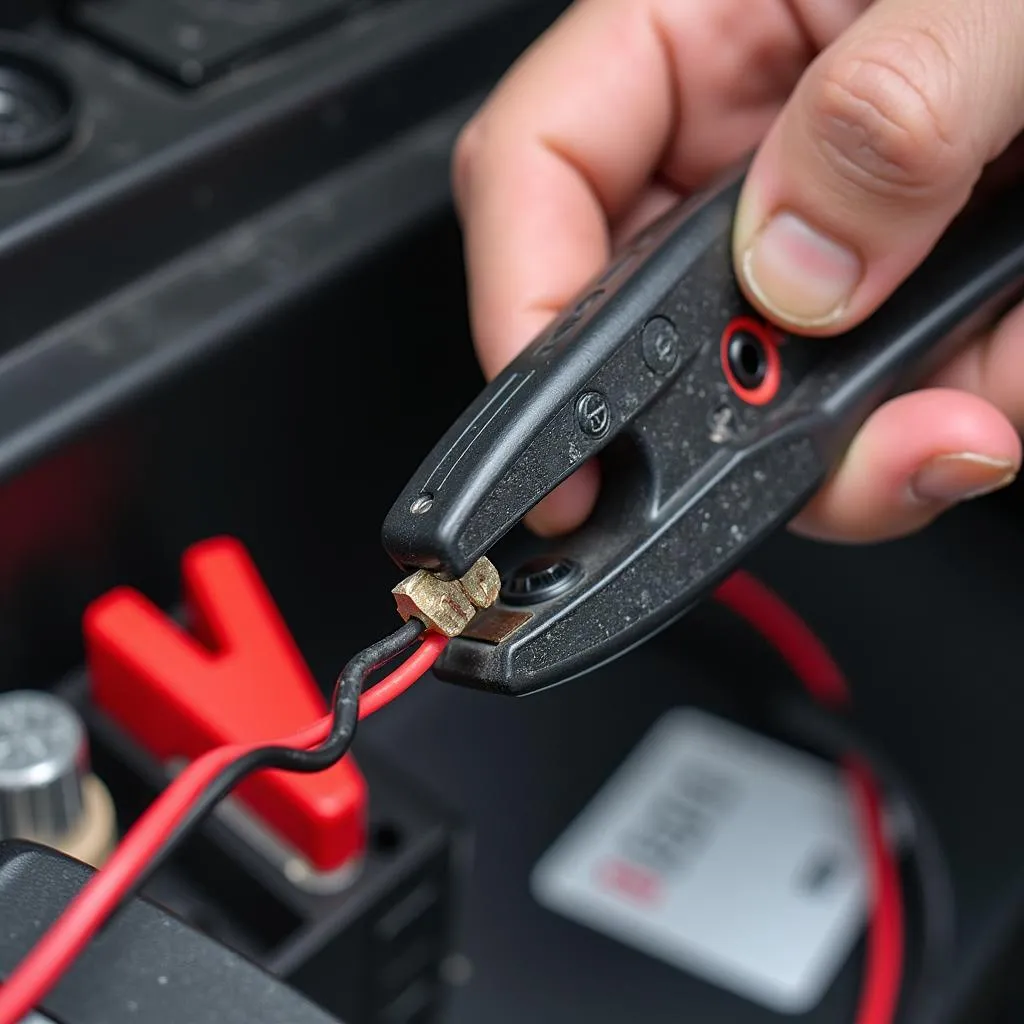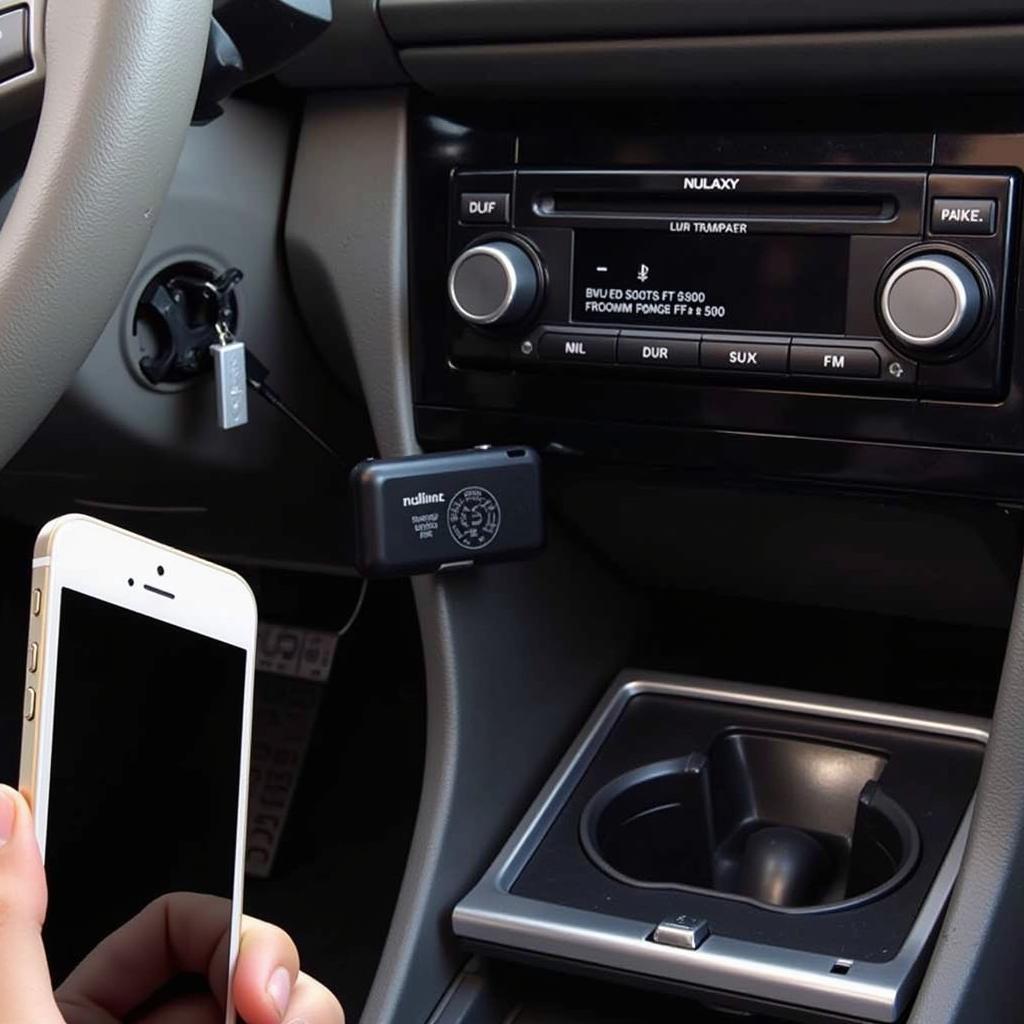So, you want to enjoy your favorite tunes out on the open water? Wiring a car radio into a boat is a great way to upgrade your marine audio experience without breaking the bank. It might seem daunting, but with a little know-how, you can tackle this project yourself. Let’s dive into the process!
Understanding the Basics
Before we get our hands dirty, it’s important to understand the basic electrical systems in both your car and boat. Car radios operate on a 12-volt DC system, which is the same as most marine batteries. However, there are some key differences in wiring and grounding that we’ll address.
Common Challenges When Wiring a Car Radio in a Boat
- Power Issues: Inconsistent power supply due to weak battery connections or improper wiring.
- Grounding Problems: Poor grounding can lead to engine noise and static in your audio. Boats require a different grounding setup compared to cars.
- Speaker Compatibility: Marine environments demand specialized speakers that can withstand moisture and corrosion.
- Antenna Reception: Getting good radio reception on the water can be tricky. You might need a marine-grade antenna for optimal performance.
Identifying the Root Cause
Before you start rewiring, it’s crucial to pinpoint the exact problem.
Hardware Issues
- Blown Fuses: Check the fuse box for any blown fuses related to the radio or its circuits.
- Loose Connections: Inspect all wiring connections for any loose or corroded wires, especially at the battery and radio terminals.
- Faulty Radio: The radio itself could be malfunctioning. If possible, test it with a different power source to confirm.
Software Issues
While less common, software glitches can occasionally cause radio problems in newer car models. These issues often require specialized diagnostic tools and software updates.
“Software issues in car radios are becoming increasingly common as vehicles become more technologically advanced,” says automotive electronics expert, Dr. Emily Carter, author of “Advanced Automotive Electronics Troubleshooting.” “Having the right diagnostic tools and software can save you time and frustration in diagnosing these issues.”
Gathering Your Tools and Equipment
Having the right tools is crucial for a successful installation. You’ll need:
- Wire strippers/cutters
- Electrical tape
- Crimping tool with connectors
- Heat shrink tubing (optional)
- Multimeter
- Screwdrivers (various sizes)
- Drill with appropriate bits (if necessary)
 Car Radio Installation Tools
Car Radio Installation Tools
Step-by-Step Wiring Guide
- Disconnect the Battery: Always disconnect the negative battery terminal on your boat before working on any electrical components.
- Identify the Wiring: Locate the power, ground, speaker, and antenna wires coming from your car radio. Consult the wiring diagram in your radio’s manual for reference.
- Connect the Power: Connect the positive (red) wire from the radio to the positive terminal on your boat’s battery or a fused accessory wire that provides power when the ignition is on.
- Grounding the Radio: Connect the negative (black) wire from the radio to a clean, unpainted metal surface on the boat’s frame or a dedicated grounding point.
- Connect the Speakers: Connect the speaker wires from the radio to the corresponding terminals on your marine speakers. Pay attention to polarity (positive and negative) to avoid damaging the speakers.
- Install the Antenna: Mount the marine-grade antenna in a suitable location and connect the coaxial cable to the antenna input on your car radio.
- Test the System: Reconnect the boat battery and turn on the radio to test the connections and functionality.
 Connecting Car Radio to Boat Battery
Connecting Car Radio to Boat Battery
FAQs About Wiring a Car Radio in a Boat
Q: Can I use my car’s speakers in my boat?
A: While it’s technically possible, it’s not recommended. Car speakers aren’t designed to withstand the harsh marine environment and may quickly deteriorate.
Q: What if my radio doesn’t work after wiring?
A: Double-check all connections, ensuring they are secure and properly insulated. Verify the fuse for the radio circuit is not blown. If the problem persists, consider seeking help from a qualified marine electrician or using a diagnostic tool.
Q: Can I use a regular car antenna on my boat?
A: While you might get some reception, a marine-grade antenna is designed for optimal performance on the water and will provide much better reception quality.
Conclusion
Wiring a car radio into your boat can be a rewarding DIY project. By following these steps and taking necessary precautions, you can enjoy your favorite tunes while cruising the open waters. Remember, if you encounter any issues or need professional assistance, don’t hesitate to seek help.


